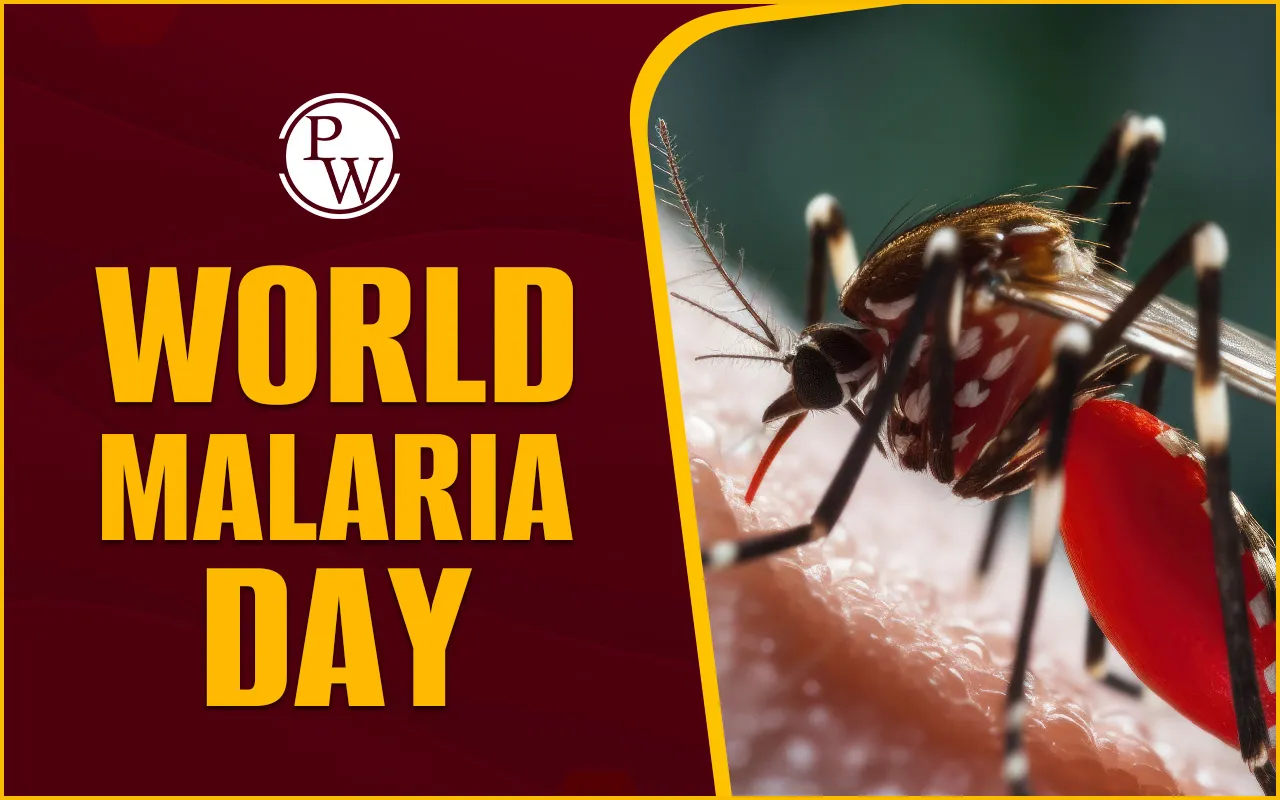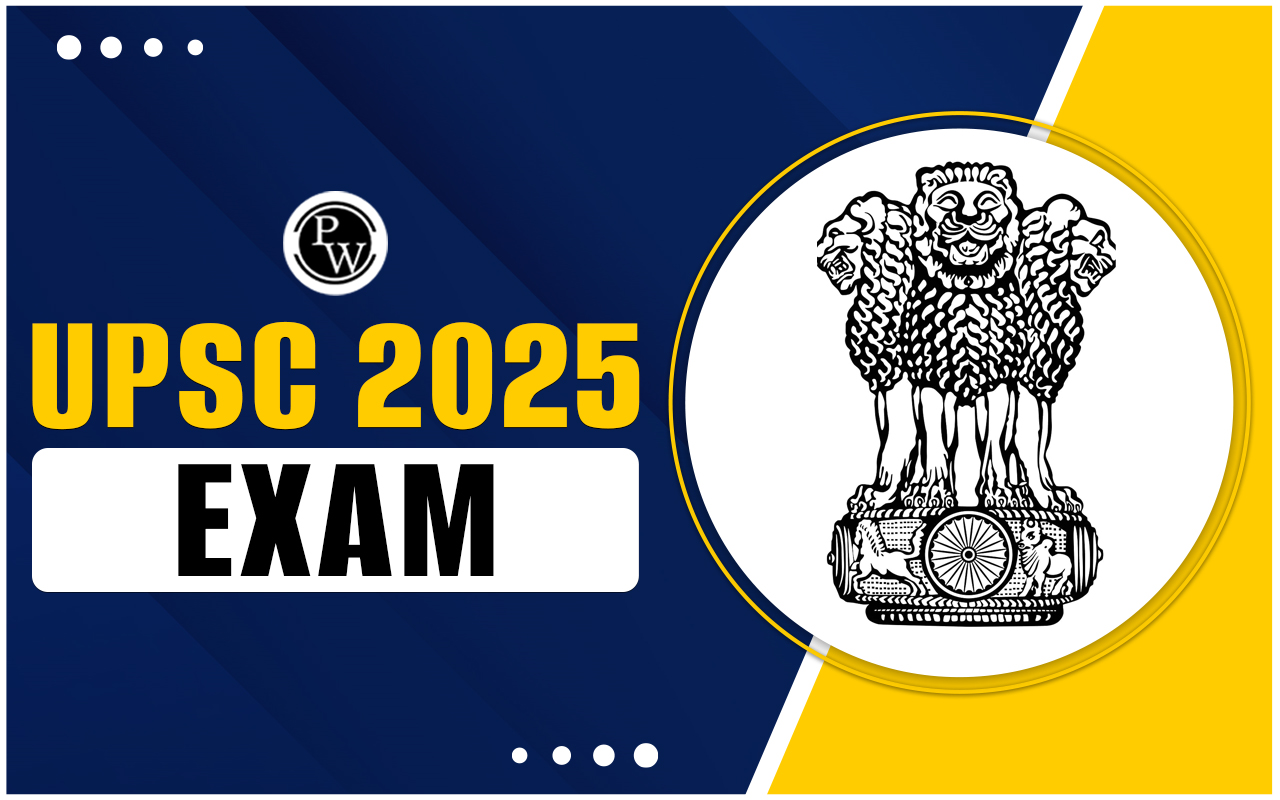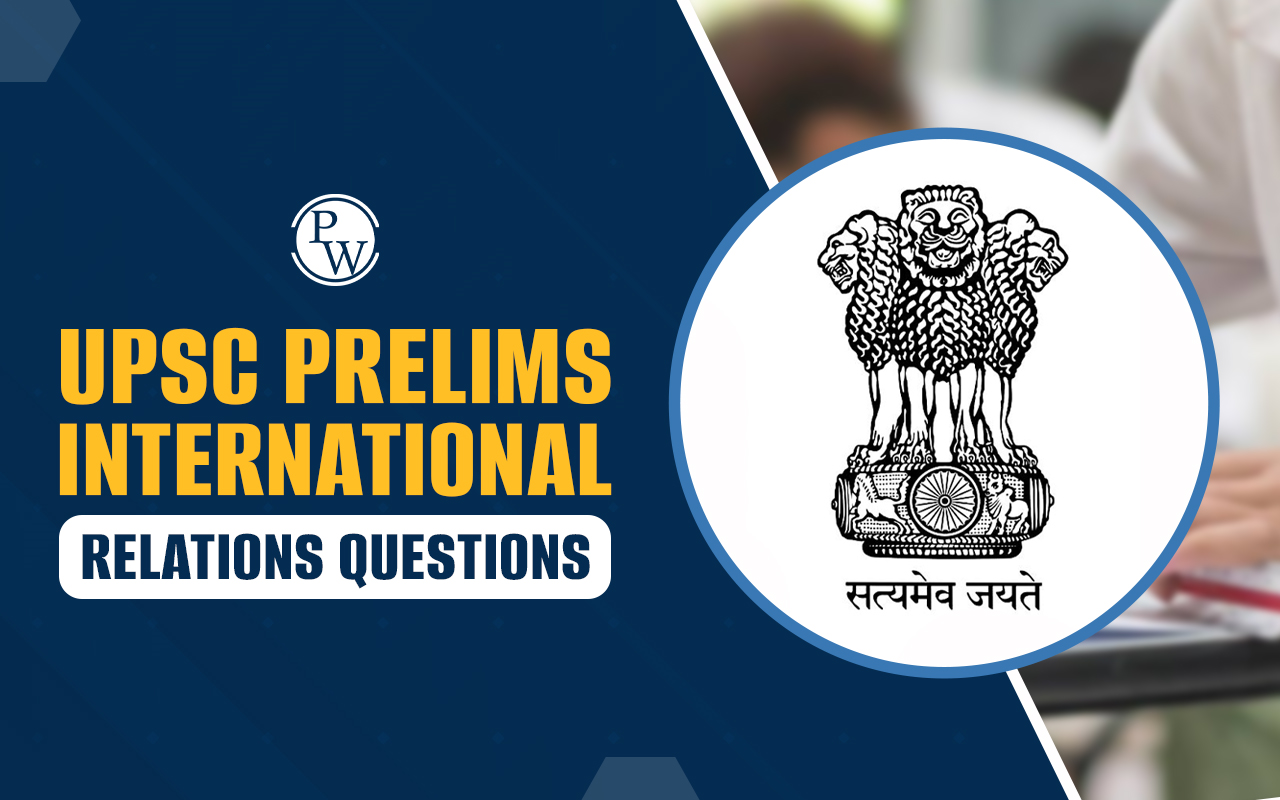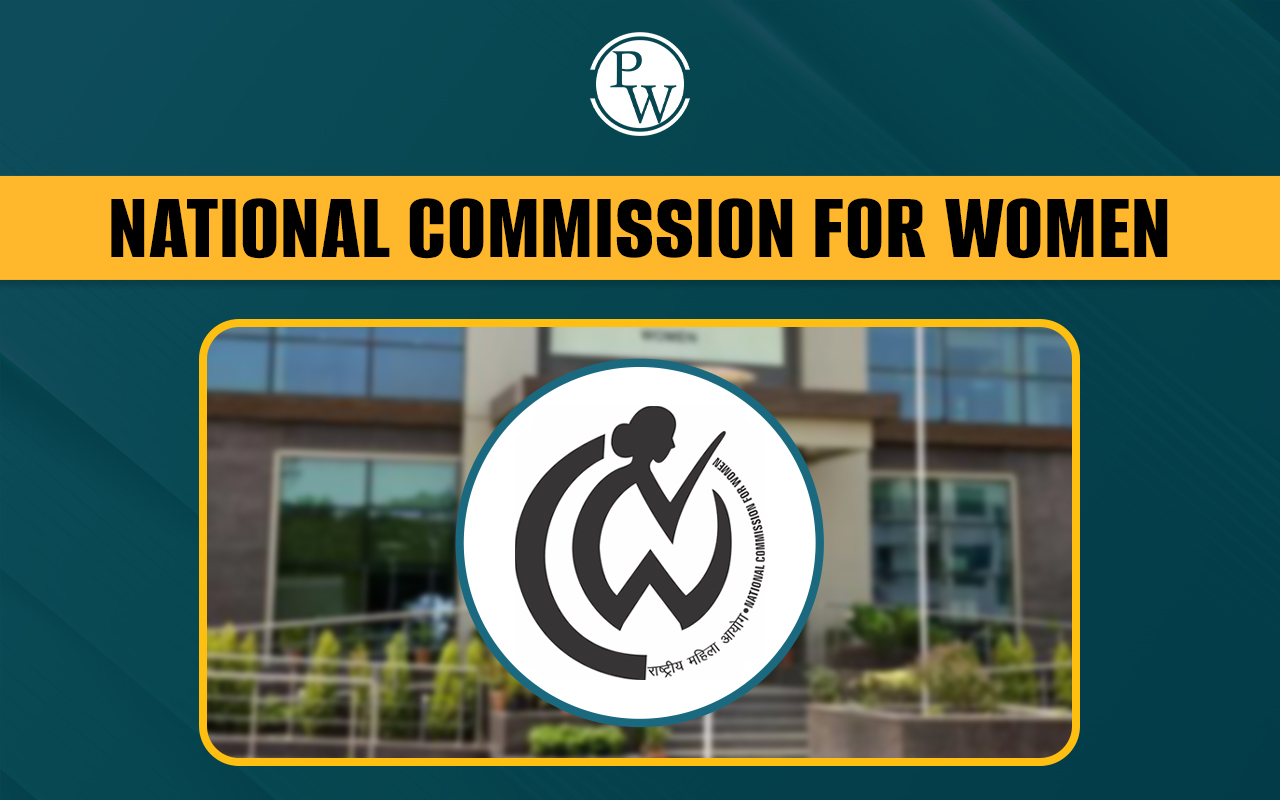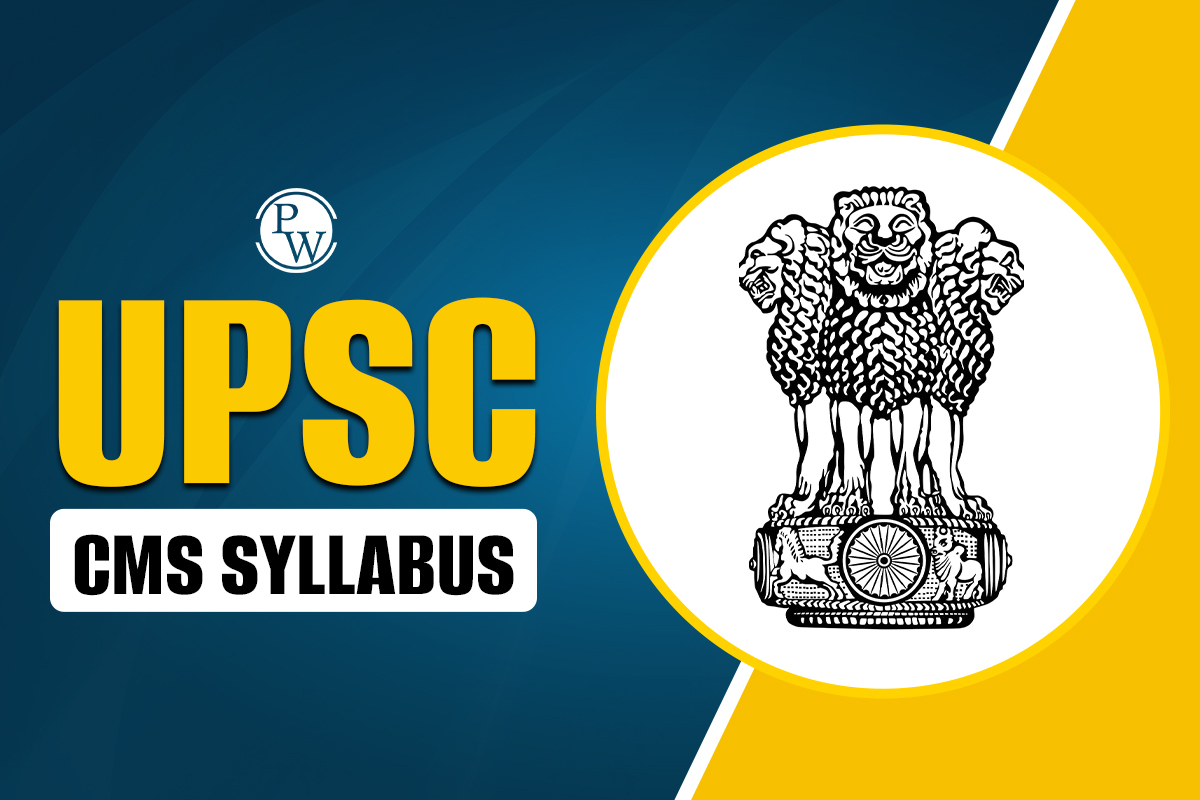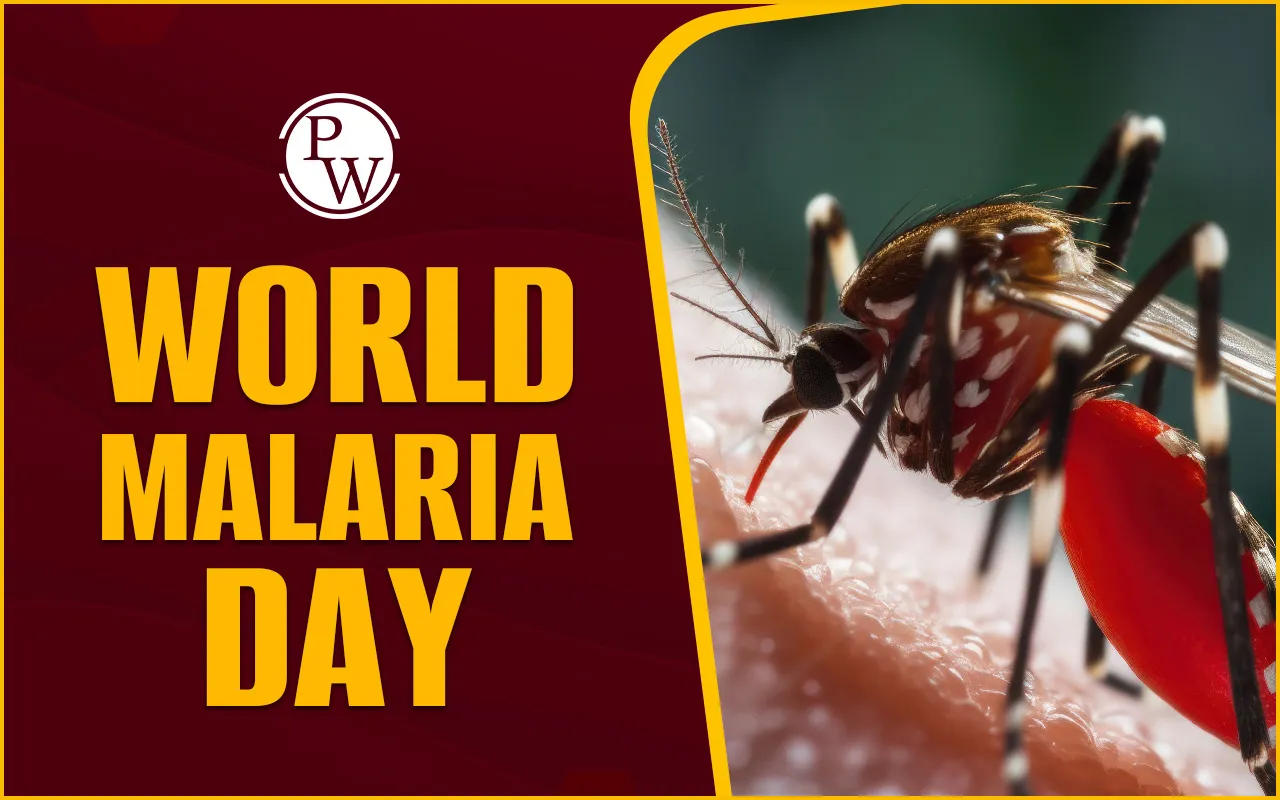
World Malaria Day 2025 was organised on 25th April 2025. It is a global health awareness day dedicated to spreading awareness about malaria, its prevention, and control. The World Health Organization (WHO) and several governments, NGOs, and health organisations will come together to mark this day under the theme ‘Malaria Ends with Us: Reinvest, Reimagine, Reignite’.
World Malaria Day 2025
Malaria affects millions of people, especially in tropical regions like Africa and South Asia. As per WHO, 95% of all malaria cases are in the African region. Even though it is preventable and treatable, thousands still lose their lives. This is why every year, World Malaria Day highlights progress made and challenges ahead in eliminating this deadly disease.
| World Malaria Day 2025 Overview | |
| Date | 25 April 2025 |
| Theme | "Malaria Ends With Us: Reinvest, Reimagine, Reignite" |
| Purpose | To raise awareness about the urgent need for continued investment and commitment to malaria prevention and control. |
| Global Impact | Malaria remains a significant global health issue with 263 million cases and 597,000 deaths reported in 2023, primarily affecting the African region. |
| Key Initiatives | Awareness campaigns, community mobilization, educational programs, and fundraising events to accelerate progress toward malaria elimination. |
| Partners | WHO, RBM Partnership to End Malaria, Global Fund, and other international organizations. |
World Malaria Day 2025 Theme
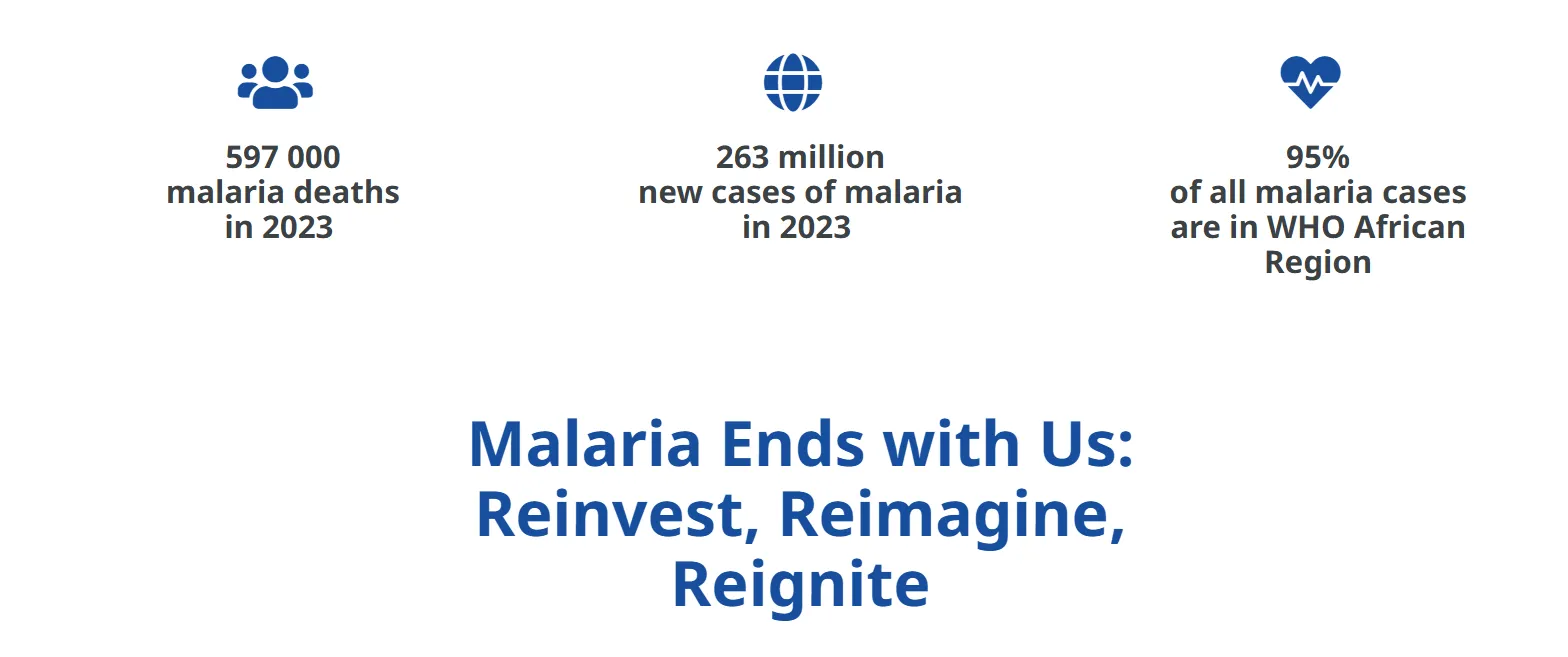
Credit: WHO website
The World Malaria Day 2025 is centered around the theme “Malaria Ends With Us: Reinvest, Reimagine, Reignite.” This message encourages people to stay committed, invest more, and find new ways to fight malaria. It also highlights the crucial role of global collaboration and long-term political will in achieving the ultimate goal of eradicating malaria worldwide.
History of World Malaria Day
The history of World Malaria Day dates back to 2007. The World Health Assembly, which governs WHO, established this day to raise awareness about the global fight against malaria. Before that, Africa Malaria Day was observed since 2001.
World Malaria Day was first celebrated on 25th April 2008. Since then, every year, the global community has used this day to spread messages about preventing malaria and saving lives. The day has played an important role in encouraging funding, innovation, and international cooperation.
What is Malaria Disease?
Malaria is a life-threatening disease caused by Plasmodium parasites. These parasites are spread to people through the bites of infected female Anopheles mosquitoes. It is not spread from person to person directly.
There are five types of Plasmodium that cause malaria in humans: P. falciparum, P. vivax, P. ovale, P. malariae, and P. knowlesi. Among these, P. falciparum is the most dangerous and can cause severe illness or death. Symptoms of malaria include:
-
High fever and chills
-
Sweating
-
Headache
-
Vomiting and nausea
-
Body aches
-
Tiredness
If not treated on time, it can lead to complications such as anaemia, kidney failure, or even coma. Malaria is both preventable and curable. Preventive methods include mosquito nets, insect repellents, and antimalarial drugs. Diagnosis is done through blood tests, and treatment depends on the type of parasite.
Malaria Vaccine
RTS, S/AS01 (Mosquirix) is the first approved malaria vaccine, developed by GlaxoSmithKline (GSK) in partnership with the PATH Malaria Vaccine Initiative. It targets the Plasmodium falciparum parasite by inducing antibodies against the circumsporozoite protein. It was approved by the WHO in 2021 and is now being rolled out in malaria-endemic regions.
R21/Matrix-M is another malaria vaccine developed by the Serum Institute of India (SII), in collaboration with the University of Oxford and Novavax. It was prequalified by the WHO in 2023 and in 2024 a total of 25 million doses were manufactured. R21/Matrix-M is mainly being rolled out in the Central African Republic (CAR) region.
Malaria in India
Malaria remains a public health challenge in parts of India, though the country has made remarkable progress in reducing its burden. Over the years, India has significantly brought down malaria cases and deaths. In 2023, the country reported zero malaria cases in around 122 districts.
India’s status has also improved from the High Burden to the High Impact group of WHO in 2024 (World Malaria Report 2024). With strengthened surveillance, targeted interventions, and community involvement, India is steadily moving toward its goal of malaria elimination by 2030.
Malaria Eradication Programme in India
India launched its National Malaria Control Programme in 1953. With support from WHO and USAID, it achieved major success in reducing cases. In 1958, the National Malaria Eradication Programme (NMEP) replaced the earlier plan to aim for complete eradication. Some major steps taken under this programme include:
-
Use of DDT spraying for vector control
-
Establishment of malaria clinics across districts
-
Use of rapid diagnostic kits
-
Focus on rural and tribal regions
Over the decades, India has modified its malaria control policies based on new challenges. The National Framework for Malaria Elimination and the National Strategic Plan for Malaria Elimination (2023-2027) aimed to eliminate malaria by 2030.
National Anti Malaria Month
India observes National Anti Malaria Month every year in June. This month is dedicated to increasing awareness about malaria prevention, especially before the monsoon season when mosquito breeding increases. During this month, state and district health departments conduct awareness campaigns, Health camps and mosquito control drives, and Educational events to combat Malaria.
World Malaria Day 2025 Significance
The significance of World Malaria Day 2025 lies in the global message it sends. This day helps to remind everyone from governments to citizens that malaria must remain a public health priority. Here are some important reasons why World Malaria Day 2025 matters:
-
It encourages countries to increase funding for malaria control.
-
It reminds health agencies to improve access to medicines and tools.
-
It motivates communities to participate in awareness and prevention efforts.
-
It honours health workers who work in tough conditions to fight the disease.
-
It pushes for innovations like vaccines, new drugs, and better diagnostics.
In conclusion, World Malaria Day 2025 is a reminder that we are closer than ever to eliminating malaria, but the fight isn’t over. Through awareness, prevention, and commitment, we can achieve a malaria-free world.
Explore PW UPSC Courses to stay informed on global health topics and other important issues for your exam journey!
| UPSC Related Articles | ||
| UPSC Prelims Previous Year Questions Paper | NCERT for UPSC Exam 2025 | UPSC Admit Card |
| UPSC Exam Pattern | UPSC Prelims Syllabus | UPSC Result |
World Malaria Day 2025 FAQs
World Malaria Day is observed on which date?
What is the theme of the World Malaria Day?
Is there any malaria vaccine in India?
Which month is known as Malaria Month?
What is Malaria end target in India?

